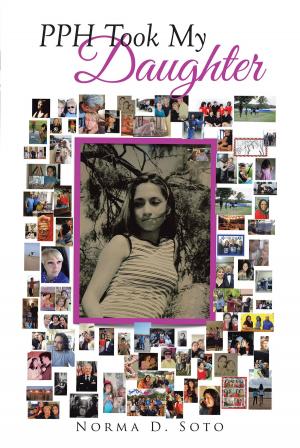Stargardt-Wolff, Edith
Pathfinder of Great Musicians
Nonfiction, Entertainment, Music, Reference, General Reference| Author: | Dr. Edmund Sallis | ISBN: | 9781635689365 |
| Publisher: | Page Publishing, Inc. | Publication: | June 7, 2017 |
| Imprint: | Language: | English |
| Author: | Dr. Edmund Sallis |
| ISBN: | 9781635689365 |
| Publisher: | Page Publishing, Inc. |
| Publication: | June 7, 2017 |
| Imprint: | |
| Language: | English |
The author describes in this book the era of the German and European music existence between 1880 and 1935. She is the daughter of the founders, Hermann and Louise Wolff. She describes the activities of her parents based upon letters of her parents and correspondences with artists. The agency developed into a worldwide, renowned music agency but had to close in 1935 for political reasons. The author gives us the opportunity to sit at the table with famous artists of yesterday and today: conductors, pianists, singers, composers, dancers, etc. Even things that happen historically are brought to light. We cannot speak of Hermann and Louise as “managers” or “agents” in the normal sense. They were of an artistic nature (note—Hermann, German, was a pianist; Louise, Austrian, was an actress). After Hermann’s death, “Queen Louise” (as she was called) continued to run the company in the same spirit. Note, “Queen Louise” references Konigin Louise (1776–1810), who was, indeed, the beloved queen of Mecklenburg-Strelitz, eighty kilometers north of Berlin.
The author describes in this book the era of the German and European music existence between 1880 and 1935. She is the daughter of the founders, Hermann and Louise Wolff. She describes the activities of her parents based upon letters of her parents and correspondences with artists. The agency developed into a worldwide, renowned music agency but had to close in 1935 for political reasons. The author gives us the opportunity to sit at the table with famous artists of yesterday and today: conductors, pianists, singers, composers, dancers, etc. Even things that happen historically are brought to light. We cannot speak of Hermann and Louise as “managers” or “agents” in the normal sense. They were of an artistic nature (note—Hermann, German, was a pianist; Louise, Austrian, was an actress). After Hermann’s death, “Queen Louise” (as she was called) continued to run the company in the same spirit. Note, “Queen Louise” references Konigin Louise (1776–1810), who was, indeed, the beloved queen of Mecklenburg-Strelitz, eighty kilometers north of Berlin.















